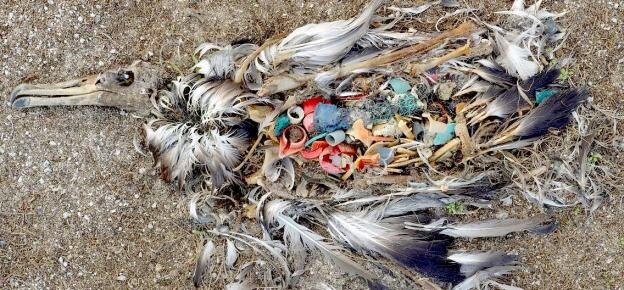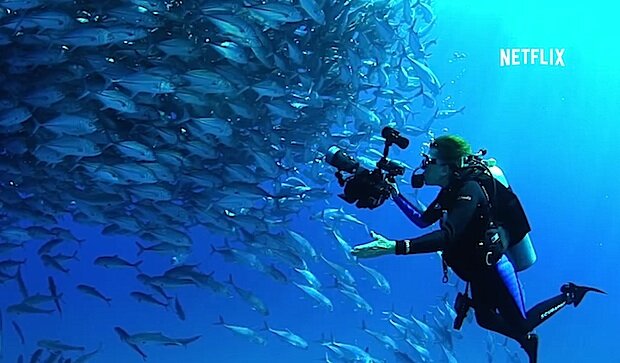Photo by Hermansyah on Unsplash
Ocean. Environment. Plastic Pollution. These are buzzwords that make many people roll their eyes. And it is not surprising, considering the conflicting information we get from the media and the scientific community. For a long time, I was a bit skeptical about climate change, which is odd considering that I am a woman who considers nature her “happy place.” However, about 6 years ago I started to be intentional about the environment— from protecting public lands to climate change. But it was not until three years ago that the topic of ‘plastic pollution’ showed up on my radar.
Plastic pollution is defined as the accumulation of plastic objects and particles (e.g. plastic bottles, bags, and microbeads) in the Earth's environment that adversely affects wildlife, their habitat, and humans. Plastics that act as pollutants are categorized into micro-, meso-, or macro debris, based on size. Plastics are inexpensive and durable, and as a result levels of plastic production by humans are high. However, the chemical structure of most plastics renders them resistant to many natural processes of degradation and as a result they are slow to degrade and some do not degrade at all. Plastic pollution can afflict land, waterways and oceans. It is estimated that 1.1 to 8.8 million tons of plastic waste enters the ocean from coastal communities each year. Living organisms, particularly marine animals, can be harmed either by mechanical effects, such as entanglement in plastic objects, problems related to ingestion of plastic waste, or through exposure to chemicals within plastics that interfere with their physiology. Effects on humans include disruption of various hormonal mechanisms (Source).
Reading the definition and the effects of plastic pollution can leave most people thinking “That is terrible.” But that is where it stops for many. I have not been a hardcore advocate for climate change, and creating change to affect positive impact against ocean pollution. I think part of that is because I had not experienced the full effect of the problems that ocean pollution is causing. Also, it can be “out of sight, out of mind” when the problem is not in our backyards. I live in the Midwest, but I have a connection to the ocean, having been born and raised on an island. But when there is a disconnection because of lack of awareness, documentaries can fill in that gap.
One of the silver linings of the COVID-19 stay-at-home order is that it has allowed me to catch up on my Netflix and Amazon Prime time. :) I have watched very good documentaries about climate change and ocean pollution, but last week I watched three (3) documentary films that I think are some of the best at driving the point that at the end of the day, as the “advanced species” in this planet, this is a problem we humans created and we need to fix it, or we will be drowning in a sea of plastic for millennia to come. These are the amazing films about ocean pollution that everyone must watch:
CHASING CORAL
Chasing Coral just gutted me, as I watched. It documents the coral bleaching events in 2016 when basically 25% of the coral in Great Barrier Reef bleached and died due to rising water temperatures. We read these things on the news, but to watch it happen, in the span of weeks and months, it is one of the saddest things you will ever see. These glorious animals (did you know coral are actually animals?) that serve as an ecosystem, completely gone. I was left with a sense of “where do we go from here?” after watching this. Climate change is a real thing and we need to stop thinking about it partisan ways and start truly addressing it.
A PLASTIC OCEAN
A Plastic Ocean left me with my jaw on the floor because again, you read about plastic pollution of the oceans and other bodies of water, but you really don’t realize the scale and the damage it is creating. Spoiler alert: There are some harsh gory scenes, but I think they are needed to drive the point. Scenes like they ones showing young animals eating plastic bags thinking they are jellyfish. Or the scenes showing the amount of plastic that wildlife is consuming. There is a part of the documentary where they dissect a bird and it is mind boggling how much plastic is inside that the bird’s little stomach. I had tears because of how sad it all is. This documentary is really good about showing the massive scale of this problem, and how it’s affecting, not just the living creatures in the ocean, but also is, humans.
MISSION BLUE
Mission Blue documents the changes in our oceans through the life lens of total badass oceanographer, marine biologist, and environmentalist Sylvia Earle— as a champion for the protection of the ocean from pollution, over-fishing and climate change. Not only is her life story, amazing, but you will watch this feeling empowered to do something because her passion is so infectious. Her story is fascinating. It was so interesting to see how ahead of her time she was, and how she navigated the pressures of society when it comes to working mothers. But the most poignant moments of the docu-film are when she talks about how much the ocean means to her. As she visits ocean sites that she previously studied, only to find them completely gone or dead, those moments are truly heartbreaking. Even without words, her face expresses those feelings.
I can guarantee that after watching these films, you will be left feeling dejected. But we can help create change! So what can we do? It doesn’t have to be some big or expensive act. It can be as simple as reducing single-use plastic you use, or as involved as contacting your local officials. I’m normally not the alarmist type, but the conditions are worsening. These documentaries were from 2014, 2015 and 2017– I shudder to think about the conditions now.
You may find me joining some of these wonderful link parties: Friday Bliss, Nature Notes, Dishing It & Digging It, Thankful Thursday, Grace at Home, Heart & Soul, Farm Fresh Tuesday, Encouraging Hearts & Homes, “Anything Goes “ Pink Saturday, Fridays with Fairytales & Fitness / Tuesday Topics/ Wonderful Wednesday/








